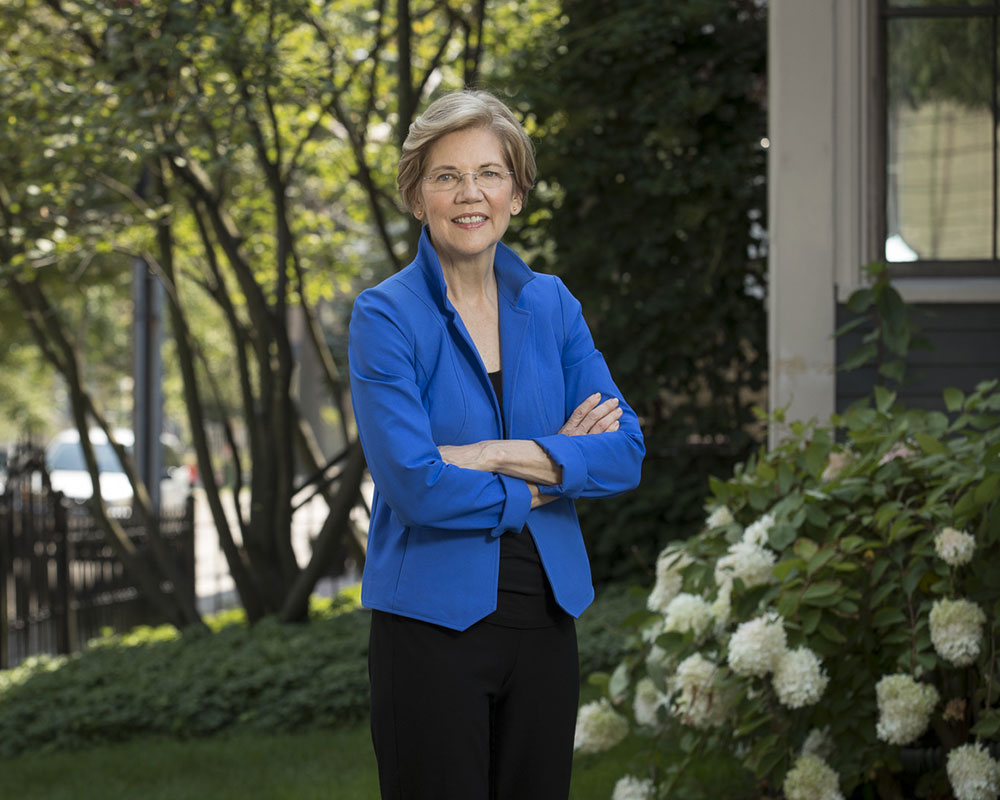No cities or towns in Massachusetts are eligible for a new Federal Reserve Bank relief program, according to a group of U.S. senators, who are seeking to expand eligibility for the COVID-19 credit and lending effort beyond the nation’s states and its largest cities and counties.
In an April 17 letter to Federal Reserve Chair Jerome Powell that was released over the weekend, Massachusetts Sen. Elizabeth Warren and six other Democrats said that by limiting the central bank’s purchase of short-term notes to cities with at least one million residents and counties with at least two million residents, most local governments around the country would be excluded from the Municipal Liquidity Facility program, “including some of the hardest-hit communities.” Haverhill Mayor James J. Fiorentini echoed the sentiment in a social media post over the weekend.
“Without a Federal bailout, states and cities, including Massachusetts and Haverhill, face a devastating round of budget cuts next year. Our revenues are down drastically and our expenses are up,” the mayor wrote.
The senators noted that the City of Boston, with a population of nearly 695,000, “will see tens of millions in lost revenue and unexpected expenses related to the immediate public health response and the long-term effects of restarting the local economy.” They referenced a National League of Cities report that found 2,100 cities are planning for major budget shortfalls this year due to tax revenue losses and increased spending tied to COVID-19.
The senators called the lending program’s population limitation “arbitrary and unacceptable,” but said they recognized the difficulty that the Fed faced in establishing program parameters since there are more than 50,000 different issuers within the municipal bond market.
Without relief, the senators said, service reductions or tax increases will follow, “both of which
The program was authorized under the $2.2 trillion CARES Act and allows the Fed to buy up to $500 billion of government debt. The Fed said shortly after the program was announced that eligible state-level issuers were allowed to use proceeds to support additional counties and cities.
The program will help state and large local governments with cash flow pressures, according to the central bank, which also pledged to “closely monitor conditions in the primary and secondary markets for municipal securities and will evaluate whether additional measures are needed to support the flow of credit and liquidity to state and local governments.”
The Federal Reserve Board voted unanimously on April 8, with the approval of U.S. Treasury Secretary Steven Mnuchin, to establish the program, recognizing the major gaps being created by rising government expenditures and falling revenues, including sales, gas and hotel tax receipts as well as impacts on tax revenues associated with pushing the annual tax-filing deadline from April 15 to July 15.
Conditions caused by the pandemic, the Fed said, have created “unusual and exigent circumstances” and mean “the need for short-term borrowing by state and local governments is expected to exceed the capacity of investors to absorb such debt at reasonable yield levels for issuers.”
In a report to Congress, the Fed said the Federal Reserve Bank of New York would play a leading role in the program and said purchases of eligible notes would end on Sept. 30, 2020, unless the program is extended. The report referenced the ability of states to request notes “in excess of the applicable limit in order to assist political subdivisions and instrumentalities that are not eligible for the MLF.”
Under the program, the U.S. Treasury will make an initial $35 billion equity investment. Eligible short-term notes will include tax anticipation notes, tax and revenue anticipation notes, and bond anticipation notes which may mature no later than 24 months from the date of issuance.
Gov. Charlie Baker on March 27 filed emergency legislation, in connection with postponing the tax-filing deadline, to authorize Treasurer Deborah Goldberg to conduct bridge borrowing and repay the debt in fiscal 2021 when deferred taxes are collected.
The bill remains before the House Ways and Means Committee. The size of the borrowing is being discussed, according to a state Treasury official.
Baker has yet to announce fiscal 2020 budget-balancing plans and the wait also continues for House leaders to announce a fiscal 2021 budget and process. Due to social distancing recommendations, the House and Senate are currently unable to meet with a quorum present and are not equipped for remote sessions.
WHAV News staff contributed to this report.
